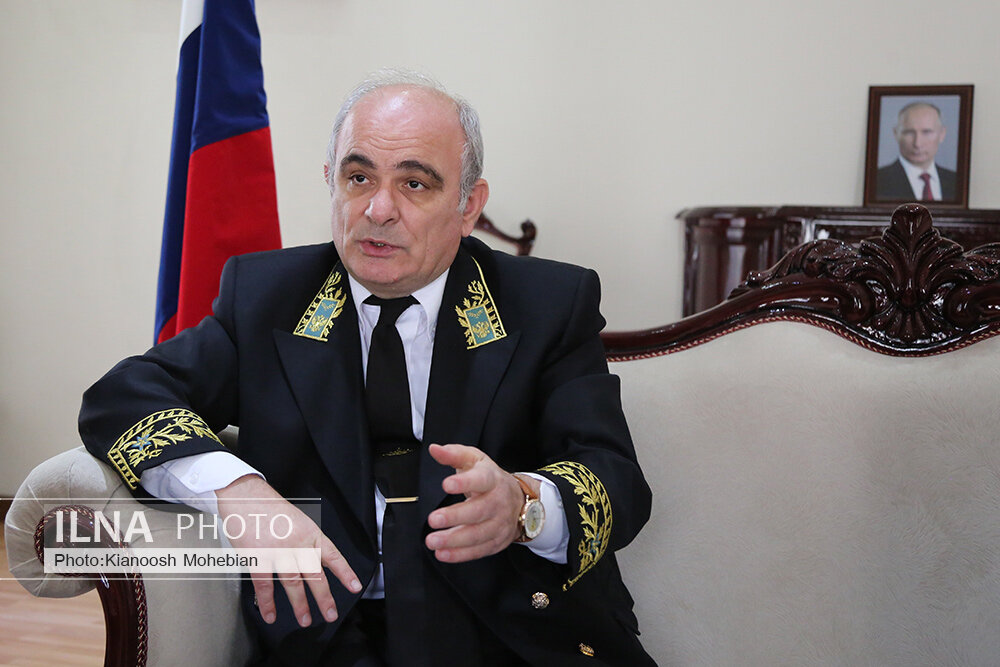Russia has made most efforts to preserve nuclear deal: diplomat

TEHRAN – Russian Ambassador to Tehran Levan Dzhagaryan has said that Russia has used its utmost efforts to preserve the 2015 nuclear deal, officially known as the JCPOA.
In an interview with ILNA published on Sunday, he criticized Europe for being passive in keeping the JCOA.
“Europe says it supports the JCPOA, but is passive in practice,” he said.
EU foreign policy chief Josep Borrell has said that Europe must ensure Iran’s benefits from the nuclear deal if it wants the deal to survive.
“If we want the Iran nuclear deal to survive, we need to ensure that Iran benefits if it returns to full compliance,” he wrote in an article in the Project Syndicate published on Saturday.
Borrell was notified in January by Paris, London and Berlin that they had triggered the dispute mechanism.
He has said that the EU will extend indefinitely the time limit to resolve disputes in the nuclear deal to avoid having to go to the UN Security Council or triggering new sanctions.
“We are in agreement not to go directly to a strict time limit which would oblige (us) to go to the Security Council,” Reuters quoted him as saying during a visit to Tehran.
Borrell said on January 24 that he had extended the time available to discuss ways to save the nuclear deal.
“There is agreement that more time is needed due to the complexity of the issues involved. The timeline is therefore extended,” Borrell said in a statement.
In the meeting with Borrell in Tehran on Feb. 3, President Rouhani criticized the EU for failing to honor its commitments after the U.S. quit the deal and reinstituted sanctions on Iran.
However, Rouhani said, “The Islamic Republic of Iran is still ready to cooperate with the European Union for resolving issues, and at any time that the other side (EU) fully observes its commitments Iran will also return to its commitments.”
In May 2019 Iran started to reduce its commitments to the JCPOA at bi-monthly intervals in response to the abrogation of the pact by the U.S. coupled with the European Union’s inaction to shield Iran’s economy from sanctions.
‘Iran’s failure to join FATF will cause problems’
Dzhagaryan also said that Iran will suffer if it refuses to join the Financial Action Task Force (FATF).
Opposition to join the FATF grew after the U.S. quit the nuclear deal and introduced sanctions against Iran.
“We are interested to see that Iran accept to join the FATF, otherwise it will cause problems. As a friendly country, Russia has announced its view to Iran. However, it is Tehran who should take the final decision, because it is an internal issue,” he pointed out.
The Paris-based Financial Action Task Force (FATF) said on October 18 that it has given Iran a final deadline of February 2020 to tighten its laws against money laundering in compliance with the global watchdog’s financial standards.
“If before February 2020, Iran does not enact the Palermo and Terrorist Financing Conventions in line with the FATF Standards, then the FATF will fully lift the suspension of counter-measures and call on its members and urge all jurisdictions to apply effective counter-measures, in line with recommendation 19,” the FATF said in a statement, Reuters reported.
The government is pushing for the approval of the FATF.
In October 2018, the parliament voted to join the FATF. However, the Guardian Council rejected it. Now the ball is in the Expediency Council’s court.
When there is a dispute between parliament and the Guardian Council the issue is referred to as the Expediency Council for final arbitration.
‘Assassination of Gen. Soleimani to have negative consequences on the region’
Ambassador Dzhagaryan also said that assassination of Lieutenant General Qassem Soleimani will have negative consequences on the West Asia region.
He strongly condemned the U.S. action in assassinating Soleimani.
Soleimani was assassinated in a U.S. airstrike in Baghdad on January 3. In a retaliatory move, Iran fired dozens of ballistic missiles at a major U.S. military base in Iraq on January 8.
The Russian diplomat called on Iran and the U.S. to practice self-restraint and solve problems through dialogue.
NA/PA
Leave a Comment